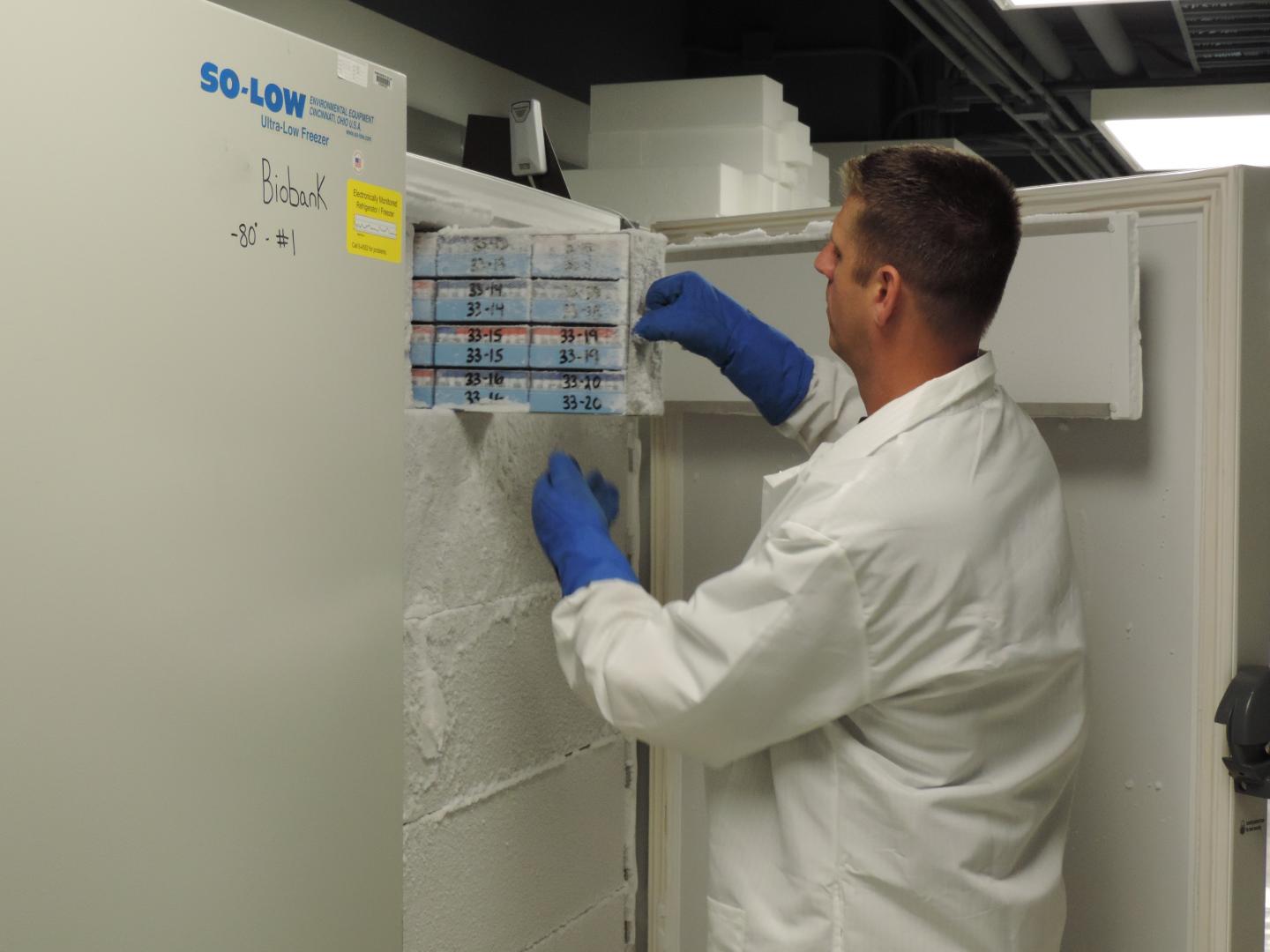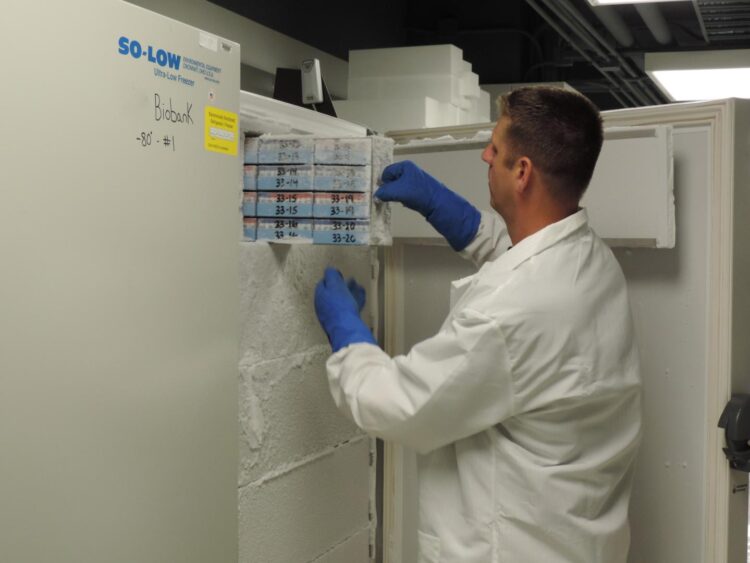Cincinnati Children’s Hospital teams with DownSyndrome Achieves

Credit: Cincinnati Children’s
FEB. 22, 2021 – Cincinnati Children’s Hospital Medical Center has collaborated with DownSyndrome Achieves (DSA) to launch a research biobank, which serves as a central repository for biospecimens donated by individuals with Down syndrome and their immediate families.
The DSA Biobank aims to improve clinical care and health outcomes for individuals with Down syndrome and others by housing high-quality, well-annotated biospecimens that aid in driving basic, translational, and clinical research.
The DSA Biobank team at Cincinnati Children’s includes:
- The laboratory of William Nichols, PhD, associate director of research in the Division of Human Genetics at Cincinnati Children’s
- The Cincinnati Children’s Discover Together Biobank, which is directed by Michael Pauciulo, MBA.
The Discover Together Biobank at Cincinnati Children’s is a secure facility for a variety of blood, saliva, and tissue samples as well as related information that helps researchers drive scientific breakthroughs.
The DSA Biobank will create an important, novel biospecimen resource for the Down syndrome research community, Dr. Nichols said.
“In leveraging our existing expertise in the collection, processing, and storing of biological specimens and clinical data over the course of the last decade in my laboratory, this new partnership with DownSyndrome Achieves and the Cincinnati Children’s Discover Together Biobank is the continued application and expansion of our biobanking efforts,” Dr. Nichols said.
Incorporated into the DSA Biobank model are many of the Discover Together Biobank’s institutional concepts behind broad consent, sample governance, and wide sharing of biospecimens/data, Pauciulo said.
“This partnership with DSA and Dr. Nichols continues Discover Together down the path of utilizing our biobanking expertise and infrastructure to partner with national and regional research networks,” Pauciulo said. “We couldn’t be more excited to leverage our resources to help DSA improve health outcomes for the Down syndrome population.”
Institutional Review Board protocol has been approved, and a pilot phase of operations has been completed with enrollment from Lee Specialty Clinic in Louisville. Additional Down syndrome clinics are slated to start enrollment later this year, including at Cincinnati Children’s.
Lito Ramirez, CEO of DownSyndrome Achieves, described the new DSA Biobank as a national resource.
“DSA Biobank, in partnership with Cincinnati Children’s Hospital, provides researchers with the potential to unlock some of the mysteries associated with Down syndrome,” Ramirez said. “Currently, researchers do not have readily available blood and other samples to advance our understanding of the conditions that co-occur with Down syndrome. I’m excited the Down syndrome community will have this national resource, which is long overdue.”
###
ABOUT CINCINNATI CHILDREN’S
Cincinnati Children’s Hospital Medical Center has ranked No. 3 or higher in U.S. News & World Report’s annual survey of Best Children’s Hospitals for 10 consecutive years. The hospital’s 1.38 million patient encounters in 2020 included children from 50 states and 51 countries, many of whose families sought care for complex or rare disorders. The medical center also is among top recipients of pediatric research grants bestowed annually by the National Institutes of Health. Nearly one-third of the employees at Cincinnati Children’s are engaged in scientific research.
ABOUT DOWNSYNDROME ACHIEVES
DownSyndrome Achieves is a research advocacy group that envisions a future when Down syndrome comes without health complications. When people with Down syndrome can maximize their potential and lead healthier, more active, and independent lives. That is why we developed the DSA Biobank. Located at Cincinnati Children’s Hospital Medical Center, the DSA Biobank is the first of its kind to catalog, store, and openly share biosamples and associated health data for study. Our keen focus on fostering collaboration allows us to provide researchers with the critical biosamples needed to develop breakthrough treatments and therapies.
Media Contact
Barrett J. Brunsman
[email protected]





